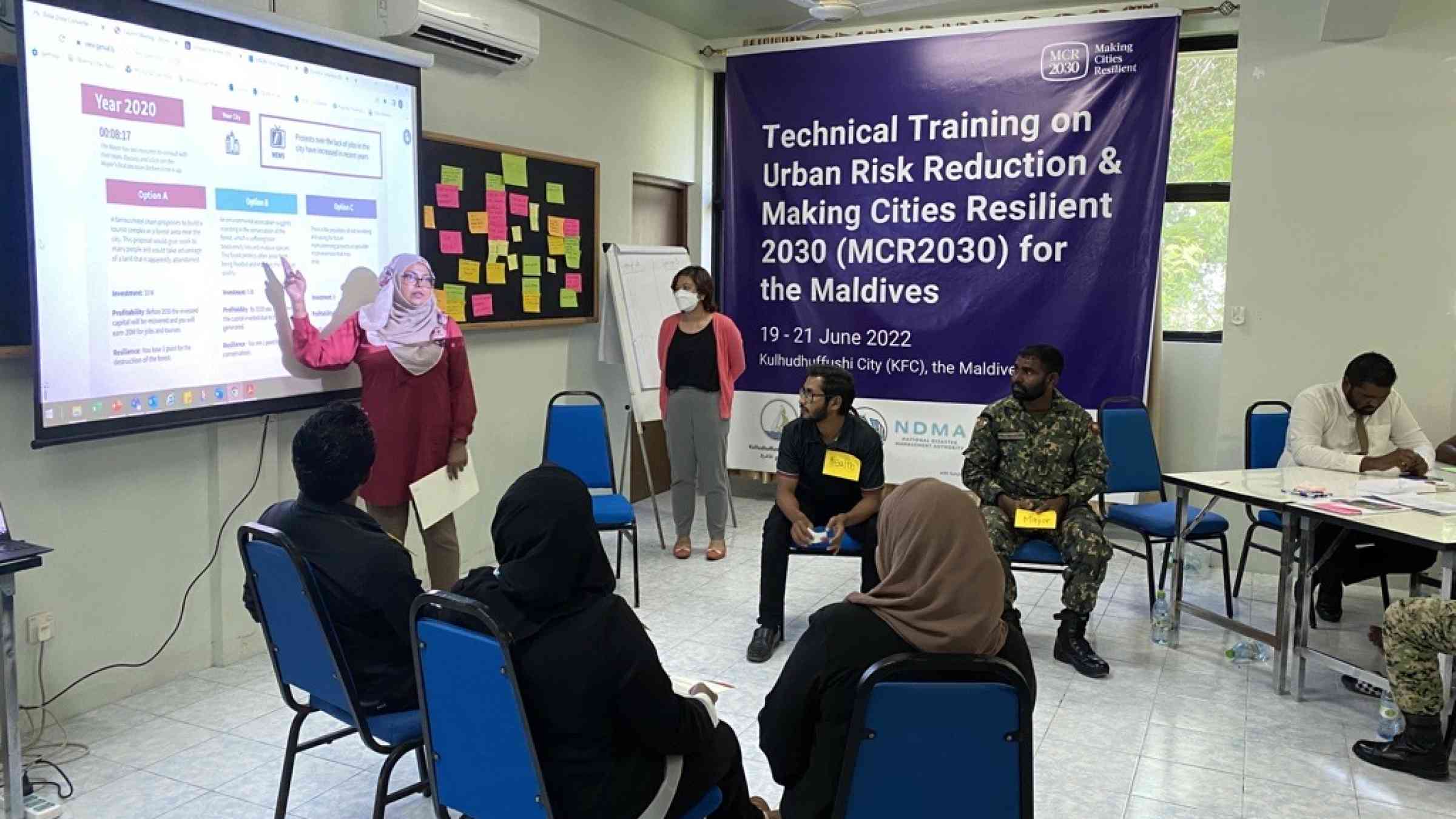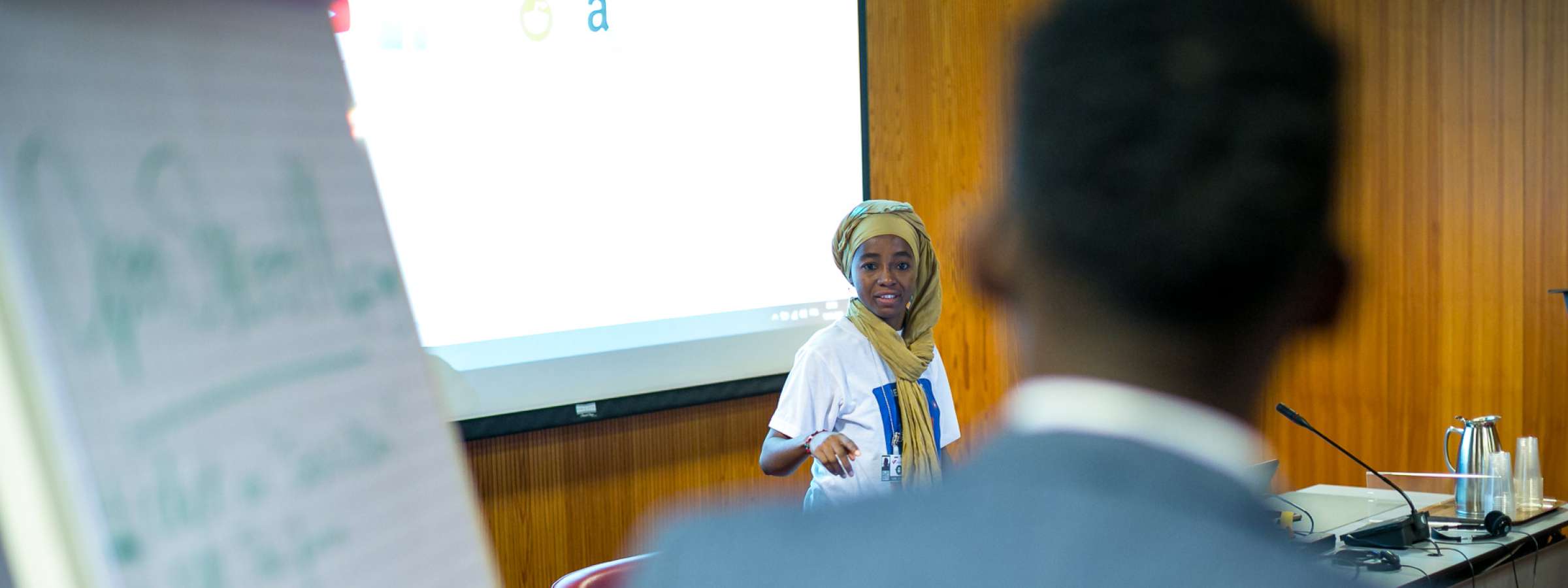El riesgo es un asunto de todas las personas. UNDRR no puede reducir el riesgo de forma solitaria.
El Global Education and Training Institute (GETI) de UNDRR, situado en Incheon, República de Korea, trabaja globalmente con los gobiernos, instituciones, el sector privado y la sociedad civil para fomentar la capacidad de incorporar la reducción del riesgo de desastres y la adaptación al cambio climático en el desarrollo sostenible.
A través de nuestra campaña Desarrollando Ciudades Resilientes, convocamos y apoyamos el aprendizaje interurbano para fortalecer la resiliencia y proporcionar apoyo para la capacitación de las instituciones nacionales que trabajan en temas de resiliencia, apoyando el intercambio de mejores prácticas.
Contáctenos para aprender más sobre nuestros cursos personalizados bajo solicitud.
Próximos programas de formación UNDRR
Capacitaciones bajo demanda
Muestras de cursos
Relacionado


